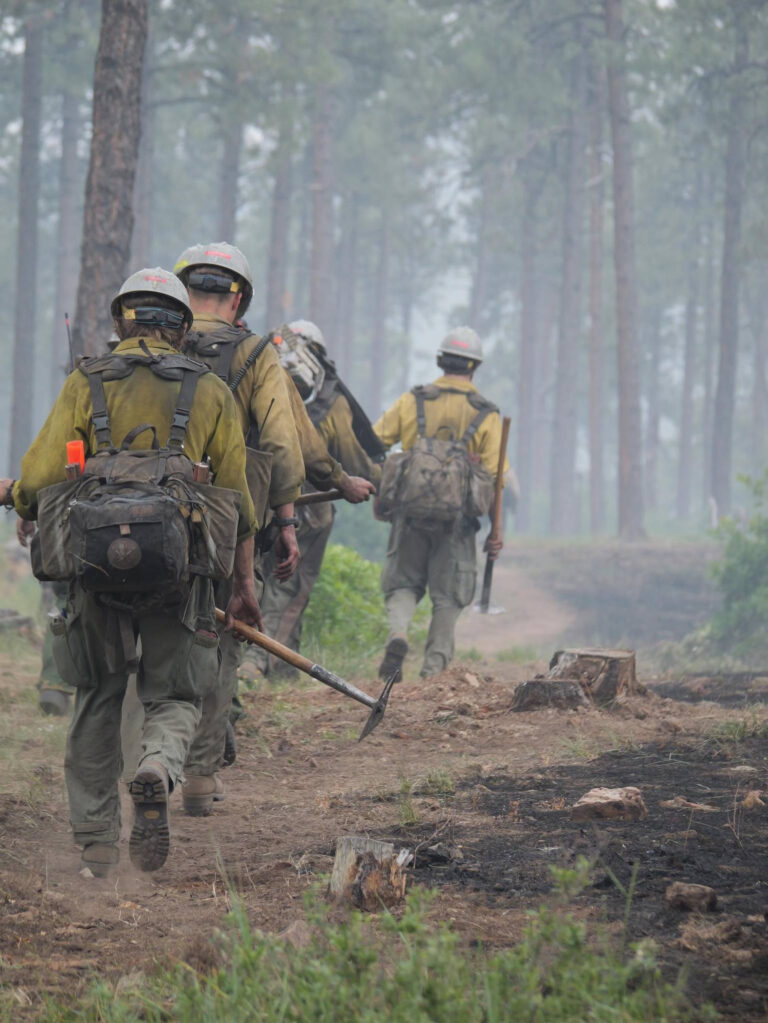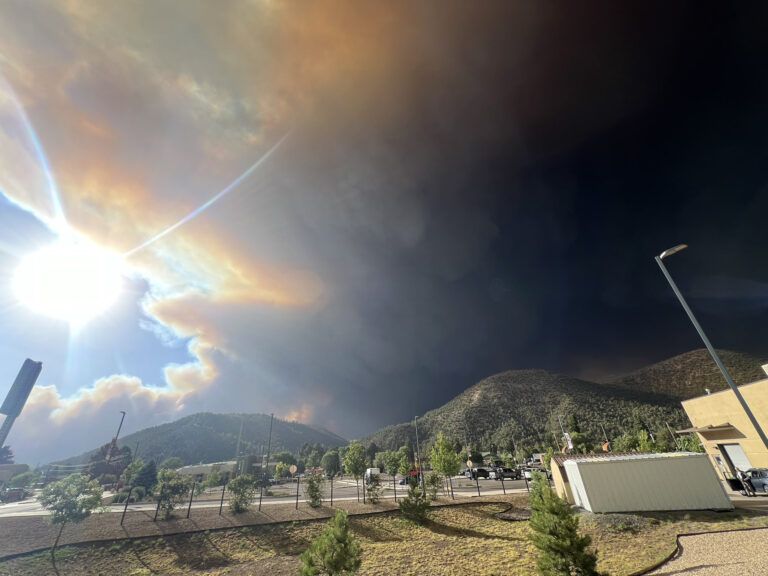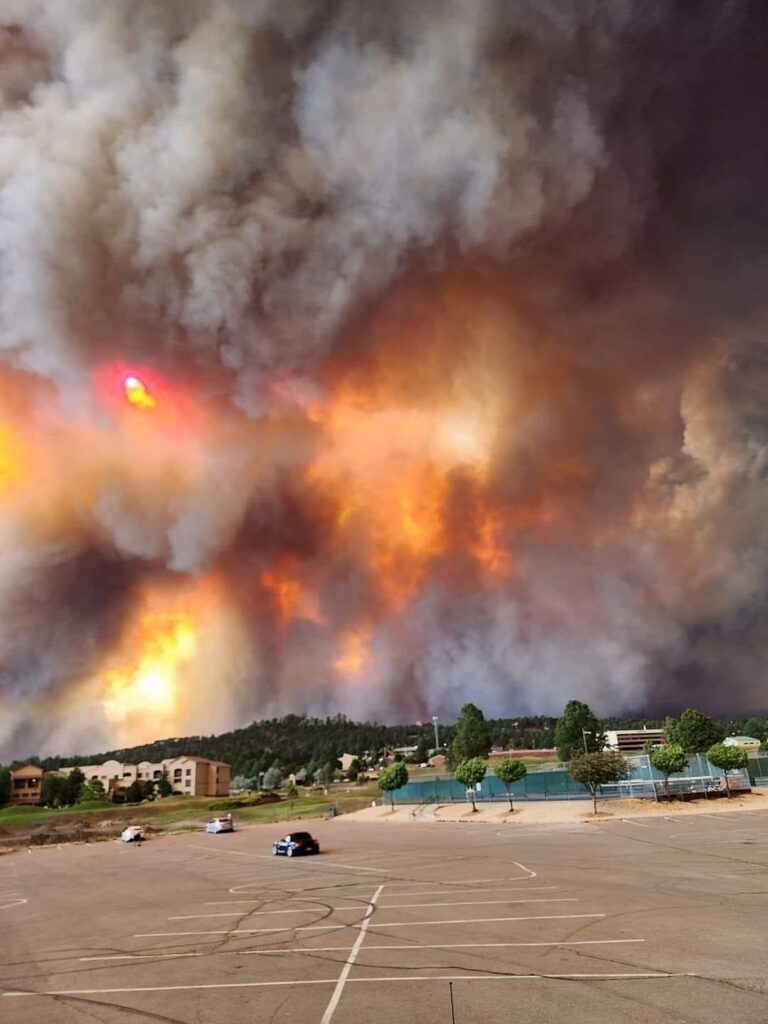
(Martin Green – For the Daily Press)
Drive down South First Street at 4 a.m. — when the typically busy portion of U.S. 285 is mostly deserted, save for the occasional semi truck or WIPP shipment — and you might spot a small food trailer, its lights on and side door open.
Inside, Rosa Guillermo, owner of Super Taco, and her staff are preparing for the breakfast rush. At most restaurants, that typically occurs anywhere between 8 and 9 a.m. But in Artesia, where scores of oil and gas industry workers will soon be streaming into the oil patch, it’s a different story — one whose main character is the humble breakfast burrito.
“Our rush is typically from 5:30 a.m. to 9:30 a.m.,” Guillermo said.
Super Taco, located at 702 S. First St., opens at 5 a.m., and often, there’s already a pickup truck or two waiting in the parking lot. Prep work includes cutting the meats and produce that will fill the burritos — “especially all the produce for our pico de Gallo,” Guillermo said — cracking eggs, firing up the grills, and getting started on the carne asada and asado.
Across town, cooks at Fenn’s Country Market and Alma’s are also beating the sunrise to work. They’ll begin their preparations for the morning with plenty of chopping and egg-cracking as well. All three eateries offer more than burritos, but it’s that most portable of breakfast items that appeals to hungry workers en route to an arduous day in often remote locations.

stacks of fixings. (Martin Green – For the Daily Press)
A breakfast burrito can be easily eaten on the long drive to the rig site, a hearty way to start the day. Foil-wrapped burritos can be packed into coolers and saved for lunch. Burritos are also a simple item to purchase in bulk for distribution to coworkers.
“Having a hot, fresh burrito in the morning is one of the best things around,” said Anthony Martinez, a lease operator with Coterra Energy. “Having it readily available in the morning makes it easy when you’re trying to get out of town. The burrito is a delicacy in itself but even more so early in the morning.”
Alma’s opens at 6 a.m., and by that time, they typically already have a large, pre-placed burrito order waiting to be filled.
“Navajo is one of our biggest customers on burritos, and APSI as well,” said owner Alma Martinez. “Waitresses get there at 5:30 a.m. to get it all going.”
The most popular request of the day is generally the Bulldog Burrito.
“That’s our famous one,” said waitress Massiel Miranda. “It comes with everything besides the kitchen sink, like it says on the menu. Eggs, hashbrowns, sausage, ham, bacon, green chile — if it’s a breakfast item, it can go in there.”
At Super Taco, the favorites include the Mexicana Burrito with carne asada and grilled pico.

(Martin Green – For the Daily Press)
“Most people will typically add beans and cheese at no additional cost,” Guillermo said. “Another very popular and common option is, of course, our asado, and most people will add beans and cheese, and some will add eggs.
“We also have our arriero burrito, and it includes our fried pork, green chile, cheese, homemade pinto beans, and of course our brisket burrito, which is a great option for everyone, since you can have it by itself with grilled pico de gallo, with green chile, or with cilantro and onion!”
Fenn’s gets plenty of orders for its hefty bacon, egg and cheese burritos, as well as chorizo, egg and cheese. And as all burrito aficionados know, it’s not all about the main course; the salsa needs to shine as well.
“People love our salsas,” said Francisca Leon, deli manager at Fenn’s. “We make all our own salsas. I’ve been here 10 years, and the recipes haven’t changed.”
It takes a certain kind of person to make it in the oil and gas industry, someone willing to work hard for an honest day’s pay, through long shifts, scorching summer heat, and physically demanding tasks. Many workers reside in Artesia and the surrounding area, but others travel long distances for work, leaving family and the creature comforts behind to make their living.
The restaurant owners and staff willing to climb out of bed even before the workers do to ensure they have a hot, filling breakfast to send them off recognize that level of dedication — and are themselves examples of it.
“We are not a chain restaurant, and our business depends on our day-to-day customers,” said Martinez. “Our food is made fresh every day, and we want our customers to feel valued, welcome and appreciated. It is because of them we can succeed as a business. Special thank-you to all our employees that go above and beyond every day to give the best service.”
“Some people don’t have the time to cook themselves breakfast,” said Leon. “Some people are just on the go, so it’s pretty nice to have people that are here and ready to serve the people that have to get up and go to work so early.”
“We know how it is, especially with the oilfield,” said Miranda. “They come from very far away sometimes, and they don’t have families here — they don’t have home-cooked meals. So for us, it gives us a little peace knowing that they get something close to home, something fresh.”
“We are willing to go above and beyond to serve these workers because we too come from families and homes that have someone working out in the oilfields or at the refinery,” Guillermo said. “Our clients and the workers of Artesia, or even those passing through, have become like family to us, and we’d do anything for family, especially when they have been as supportive as the workers of the oil and gas industry.
“We know that the early mornings can become a hassle, and workers shouldn’t have to worry about what is going to fuel their bodies for the long day ahead, especially when we’re sure Super Taco will have exactly what they are needing — and, if not, that our chef will be willing to accommodate!”











Religion still has power in American politics even as the U.S. becomes a more secular nation
By TRIP JENNINGS
El Rito Media Columnist
In 1996 I took a year off from journalism to attend seminary in Atlanta. The plan was to cram as much theology, sociology of religion and church history into two semesters to return to a newspaper to cover the intersection of religion and politics. It was obvious even then that understanding the white evangelical Christian constituency that would propel George W. Bush and Donald Trump into the White House would come in handy for a political reporter.
After a year, however, I decided I liked reading philosophy, theology, ethics and history and the conversations they had prompted, so I tacked on another two years and earned a Master’s of Divinity degree. After graduating, I got a newspaper job in Connecticut an hour from New York City just in time to cover the 9/11 terror attacks, anthrax, and several political scandals.
I never got to report on the mix of religion and politics like I’d hoped. However, the topic is an abiding interest. For example, this week the use of the word “biblical” in American politics is of keen interest. At its annual meeting in Indianapolis, the Southern Baptist Convention will decide whether to take up the question of whether to ban women from serving in any pastoral roles at a church. Supporters defend the proposal as “biblical,” meaning they trace its authority to the Bible itself.
“If we won’t stand on this issue and be unapologetically biblical, then we won’t stand on anything,” the Associated Press quoted amendment proponent Mike Law, pastor of Arlington Baptist Church in Virginia, as saying.
The Southern Baptist Convention is the largest Protestant denomination in the country and is made up of mostly white evangelicals, a constituency that overwhelmingly supported Trump in the 2016 and 2020 presidential elections and likely will again this year. When I say I’m bewildered by the phrase “unapologetically biblical,” this is not coming from a casual observer of American Christianity or American politics: I’ve been around the Bible since childhood and have covered politics for more than 30 years. Contrary to the pastor Law’s fervently held belief, the Bible does not speak definitively on the question of women as pastors. People on opposite sides of the question have found support biblically for their respective stances for decades.
That’s the thing about the Bible; it’s not as clear as many people purport it to be. In fact, it can be extraordinarily vague, which is why there exist so many competing interpretations of the Bible.
Interpretation is not a bad thing. We humans do it every day, to make sense and derive meaning from both trivial and profound matters in our lives.
The Bible is no exception.
Perhaps this point is meaningless to you as you cite the country’s increasingly secular turn. But it does matter. In some corners of America, the Bible remains a source of authority and certainty, even solace and comfort, at the same time many of these Americans who revere the Bible seem increasingly not to really know what’s in it.
The irony, then, is that the word “biblical” holds a certain power even as more Americans sever their ties to organized religion. The use of “biblical,” then, offers a glimpse into the perennial power of faith and religion in American politics. To say an idea or belief is “biblical” is shorthand for many Americans that the idea or belief is grounded in truth. And to say something is true with a capital T can sway people to vote a certain way even if they’re not sure what the Bible says themselves. People who use the word “biblical,” in fact, often count on this biblical illiteracy.
They can say whatever they want without challenge. Full disclosure so you know my bias on women pastors and the importance of knowing the Bible, especially journalists: I was raised Southern Baptist. Reading the Bible and church going were at the center of my life growing up. In addition to three weekly services, I participated in Bible studies and “sword drills,” a game in which an adult called out a Bible verse to a group of children who competed to locate it in the Bible. Later came seminary, with classes in all the subjects mentioned above as well as classes in ancient Hebrew and Greek. The thinking was, and still is, that pastors should be able to read the Bible in the original languages they were written. It’s more of an aspiration than a reality for most graduating seminarians, but it’s a notable goal.
I am also a preacher’s kid. In my case, it was my mother who was the minister. A lifelong Southern Baptist, my mother departed the denomination in the 1980s when she was dissuaded from pursuing a call to ministry after a fundamentalist takeover of the denomination. (The same players would help to strengthen white Evangelical and fundamentalist power and influence over the Republican Party years later.)
Not one to let men stand in the way of what she considered a calling from God, my mother attended a Presbyterian seminary and became a minister in that denomination.
I am not writing this column to litigate whether the Bible supports women as pastors or not.
It’s a free country. Those who oppose women becoming pastors by quoting the Bible have a right to their opinions, as do I and many others who find ample evidence in the Bible to support the opposing view. I just wish more Americans stopped to think before believing what someone says is in the Bible or simply shrugging and saying it doesn’t matter. Whether you believe in God or think religious belief is a bunch of hooey, the mix of religion and politics helps to shape our public life in the United States. Sometimes it even influences who sits in the White House.
(EDITOR’S NOTE: Trip Jennings started his career in Georgia at his hometown newspaper, The Augusta Chronicle. Since 2005, he has covered politics and state government for the Albuquerque Journal, the New Mexico Independent and the Santa Fe New Mexican. In 2012, he co-founded New Mexico In Depth, a nonpartisan, nonprofit media outlet that produces investigative, data-rich stories with an eye on solutions that can be a catalyst for change.)